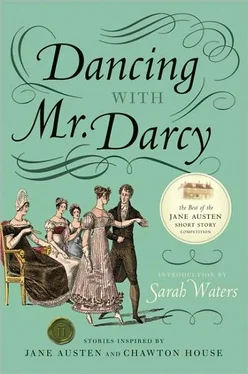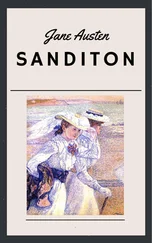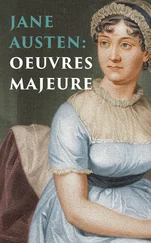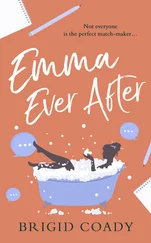‘There’s no need to be rude,’ Lucy sobbed, smoothing his hair.
‘Why shouldn’t he be allowed a bit of cake?’
‘A bit of cake? How much is left exactly, Rachel?’
Rachel peered into the depths of my ravaged wicker picnic hamper.
‘None,’ she replied. ‘Apart from a few crumbs and some hundreds and thousands—’
‘None!’ I nearly exploded.
‘He’s not well!’ Lucy yelled at me, as if that made it all better.
‘We won’t be having cake then,’ Rachel said sadly and flipped the lid of the hamper shut.
‘There’s still crumpets,’ I said. ‘And I can make some tea—’ but I knew that was it. The Jane Austen hen weekend ended here; I’d failed her. I was a rubbish chief bridesmaid, a rubbish event organiser and a thoroughly rubbish best friend.
Oscar emitted a loud burp.
‘Mummy,’ he said in that whiny toddler voice that reminded me why I’d chosen to teach eight-year-olds and not a nursery or foundation class. ‘I think I do a sick now.’
My beautiful hamper. There was no time to explain politely (not that I was feeling especially polite at that point) to Lucy how priceless it was. Or why, as she thrust it beneath her retching child’s chin, it might have been an idea to remove my granny’s cherished Royal Doulton and napkins from it first. I could only watch, and whimper.
‘Guess what?’ Anna burst into the kitchen with a big grin on her face, trailing cigarette ash in her wake.
‘What?’ I asked weakly.
‘The plumber’s here and he’s proper fit. Quick, come and look!’
We didn’t need telling twice.
It is a truth universally acknowledged that all young ladies, when confronted by a single man in possession of a six-pack draped in a crisp, white, wet shirt, will inevitably swoon. The fact that the plumber’s shirt was drenched in half a gallon of raw sewage could have taken the shine off it, but I was willing to overlook that, seeing as he was so handsome. And proper fit.
‘Hi,’ I said, watching as he wrestled with the waste pipe. ‘Shouldn’t you be wearing a boiler suit or something?’
‘I was at my brother’s wedding,’ he said, looking up at me with deep brown eyes. ‘But I came as soon as I could.’
‘Thank you so much.’ Our eyes remained locked. Despite this, I still managed to take in all the necessary details: the moody, furrowed brow beneath tousled dark hair, the fixed, firm jaw and the arm muscles that tensed impressively as he did something manly and complicated with a monkey wrench. I could have stood there in that bathroom all evening, oblivious to the sodden floor and heinous smell, if it meant spending more time with this Colin Firth-alike. Until Anna coughed and broke the reverie, reminding me that we had an audience. She stood in the doorway, smirking, along with Lucy, Rachel and Oscar who had thankfully stopped retching but nevertheless was still seriously cramping my style.
‘Er, did you want a cup of tea?’ I asked our hero, attempting to sound in control.
‘No, I’m fine. But I could do with changing this shirt—’ and the three of us ladies watched open-mouthed as he loosened the buttons.
‘Oh, please do,’ I said boldly – well, I was responsible for this weekend, wasn’t I? It was only right to take charge. And it hadn’t been a complete disaster, I reasoned, helping him out of his wet things. I wasn’t such a bad chief bridesmaid after all. In fact, I had a feeling this weekend was about to get a whole lot better.
And I’m sure Jane would have approved.
My inspiration: Mr Darcy and a blocked toilet. A recent sewage leak in my house inspired me, alongside my love of Jane Austen’s novels and happy endings.
One Character in Search of Her Love Story Role
Felicity Cowie
Hannah Peel was dispatched by her author to shadow heroines from Pride and Prejudice and Jane Eyre. [2] The work experience referred to here was arranged by the Characters’ Affiliation for Shadowing and Training (CAST). The origins of CAST are uncertain but it is known to have operated internationally for several thousand years, offering support to millions of hard-working fictional characters. Flann O’Brien refers to CAST on p25 of his novel, At Swim-Two-Birds (London: Penguin, 1939) He writes,’ Characters should be interchangeable as between one book and another. The entire corpus of existing literature should be regarded as a limbo from which discerning authors could draw their characters as required. The modern novel should be largely a work of reference. Most authors spend their time saying what has been said before – usually said much better. A wealth of references to existing works would acquaint the reader instantly with the nature of each character.’
Like all CAST cardholders, Hannah was well aware of the Intertextuality Act which had come in around the start of the twentieth century, acknowledging that writers could make use of existing characters, consciously or otherwise. Hannah hoped to use her shadowing work to convince her author that she could take a larger role. While some characters might be comfortable to turn in some very slight work and be used solely to comment on the downfall of the hero, Hannah was not one of them. She suspected her author of being inexperienced. Frequently, Hannah wished she might be commissioned to work with Ali Smith or Shirley Hazzard or Kazuo Ishiguro, but that was unfair. Every author deserved at least a chance to listen to their characters.
When Hannah arrived at the Netherfield Ball she immediately noted that Mr Bingley was dancing with an Unnamed Character at the far side of the floor. Hannah approached Jane Bennet, who was sitting apart, struggling with a word puzzle.
‘Miss Bennet? I’m Hannah Peel. I’m going to be the chief female character in a modern novel. I’ve been sent here, by CAST, to shadow you.’
Miss Bennet put the puzzle book aside and stood.
‘You are most welcome to Netherfield, Miss Peel. But I am afraid you have mistaken me for my sister, Miss Elizabeth Bennet. It is she who is the heroine of this novel. I am Jane Bennet and a secondary character in a parallel subplot. Shall I take you to her?’
Hannah studied a print-out of her CAST email.
‘No, it says here that my placement is with you. After that I’m off to Thornfield Hall to shadow another Jane.’
‘Oh,’ said Miss Bennet, her face flushing with pleasure, ‘Miss Eyre! You are to visit Miss Eyre? Please pass on my warmest regards to her. And to Miss Helen Burns if you should be travelling with Miss Eyre through her Lowood years. They both came to work with me when they were in development. They studied my equanimity.’
She gestured to the couch and she and Hannah sat down together.
‘Miss Eyre split her placement between myself and dear Lizzy. She shared Lizzy’s desire to argue for the rights of a lower class character to hold and express feelings. Miss Eyre studied Lizzy’s confrontations with Lady Catherine and Mr Darcy before making her passionate speeches to Mrs Reed and Mr Rochester.
‘In fact,’ said Miss Bennet, lowering her steady voice, ‘Miss Eyre came here at first of her own will. For you know that her author was most unhappy with Miss Austen?’ [3] Miss Bennet refers to Charlotte Bronte’s documented antipathy to Jane Austen. An example of this can be found in Bronte’s letter of 12 April, 1850 to W. S. Williams where she writes,‘She [Austen] ruffles herreader by nothing vehement, disturbs him by nothing profound: the Passions are perfectly unknown to her.’ However, an explanation as to why Bronte grudgingly allowed Jane Eyre to continue her CAST placement with Miss Bennet may be found in an earlier letter of 12 January, 1848 to George Lewes in which she writes,‘Miss Austen is only shrewd and observant.’
Читать дальше












